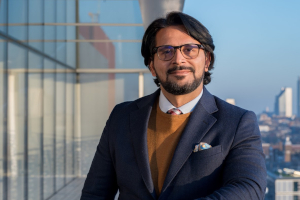This annual exploratory and informal workshop offers the opportunity to reflect on history writing in Arabic. We encourage contributions focused on methodologies, research agendas and case studies that investigate history writing in the Middle East and North Africa in any period from the seventh century to the present.
We are interested in papers that consider the practical and conceptual challenges of working on history writing in the region. Papers might explore the following sorts of questions:
-
Through what practices of writing or otherwise encoding the past, and of remembering and forgetting, have different groups in the Middle East and North Africa viewed their pasts? At different times and places, how have the significant contours, events and actors in their histories been seen? Was the significant past the same for court historians as for literary historians, for bureaucrats as for the military and for Sufis as for Muslim lawyers and traditionists?
-
How did non-Muslims and Muslims, men and women, adherents of different sectarian or juristic traditions, and speakers of different languages within societies that became ‘Islamic’ imagine the shape and meaning of their specific societies’ own pasts and their relation to the universal history of the Islamic community?
-
How have urban and rural people, workers and peasants and the religiously educated and the technocratic elite developed different ways of writing, remembering or commemorating particular events in, or the broad sweep of, local, national or ‘Islamic’ history?
-
In what ways do educational institutions, museums, media organisations and proponents of heritage use history writing in Arabic to shape loyalties and senses of belonging in the Middle East, North Africa and Europe?
-
How can digital methods now enhance or change our understandings of the past? What additional information and perspectives do they offer?
Contributions are invited from scholars at all career levels, addressing any period and any part of the Middle East and North Africa, broadly defined.
This year we anticipate running the workshop from the Aga Khan Centre in London (subject to UK government guidelines on travel), with the possibility of an online component featuring participants who are unable to travel to the UK. As in past years, there is a small budget to provide some travel assistance for scholars outside of London.
Programme date: The workshop will take place on 7 and 8 October 2021.
Organisers: Arabic Pasts is co-organised by Sarah Bowen Savant (AKU-ISMC), Hugh Kennedy (SOAS, University of London) and James McDougall (University of Oxford).
Submission: Please submit an abstract of 300 words or less by 19 April to ArabicPastsConf@aku.edu.
Programme venue: The Aga Khan Centre in London (subject to UK government guidelines on travel), with the possibility of an online component featuring participants who are unable to travel to the UK.
Contact: ArabicPastsConf@aku.edu
